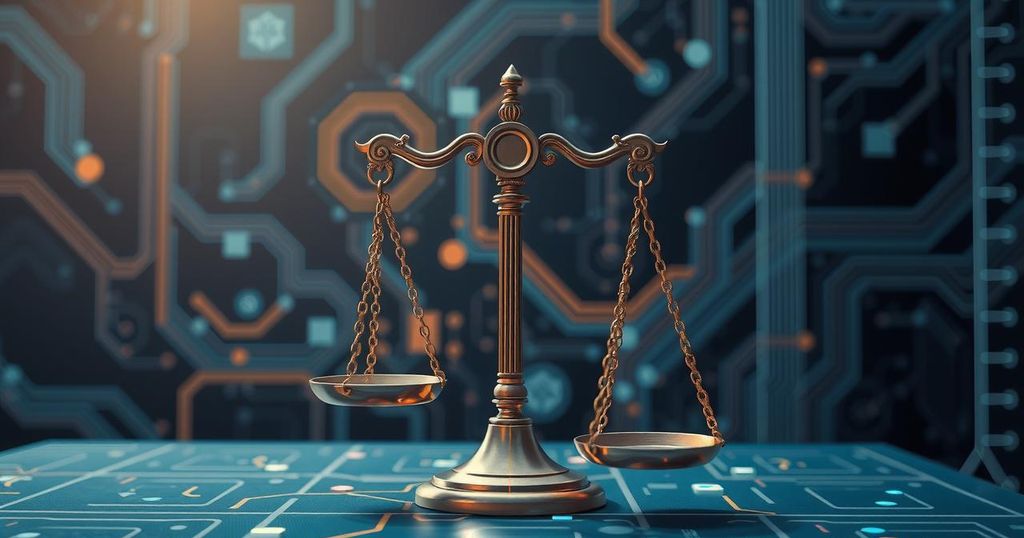AI Accountability: Navigating Legal Frameworks in an Evolving Landscape
Artificial Intelligence challenges traditional legal accountability frameworks as its autonomy grows. Incidents involving AI, such as self-driving car malfunctions, create confusion regarding liability. The European Union’s AI Liability Directive provides a framework for addressing these issues, but existing laws still require significant revisions to ensure consumer protection against the complexities of AI’s rapid evolution.
Artificial Intelligence (AI) presents both unprecedented opportunities and complex challenges as its presence in daily life grows. AI, initially designed to assist and enhance human capabilities, is now a source of legal and ethical dilemmas. Issues of accountabilities arise, especially when incidents occur involving AI systems, leading to confusion about who is responsible for harm caused by these technologies.
In the case of malfunctioning AI, such as self-driving car accidents, determining liability becomes convoluted. The owner might be held responsible, yet the car manufacturer could also face scrutiny. This ambiguity complicates legal frameworks as developers and policymakers strive to address these evolving challenges.
When designing AI systems, ethical dilemmas surface, particularly concerning moral decisions like the ‘Trolley Problem’. Developers must embed ethical choices into AI, influencing how it makes decisions in critical life-and-death situations. The current legal structures struggle to account for these uncertainties, making the need for revised liability frameworks paramount.
AI’s capabilities to learn and evolve independently create further challenges in accountability. As AI systems utilize complex algorithms, the decisions they yield often seem hidden from human understanding. Furthermore, multiple stakeholders share responsibilities in the development and deployment of AI technologies, further obscuring the path to holding anyone accountable.
To navigate these intricacies, the European Union’s AI Liability Directive proposes a framework for establishing liability in damages caused by AI. It requires courts to disclose evidence connected to these AI systems and introduces an assumption of causal links that can aid claimants. While still requiring proof of negligence, this directive seeks to create a more cohesive relationship between AI operators and consumers.
Despite the advances in regulatory measures, existing frameworks still present challenges. For example, liability for damages may fall on AI distributors while not holding users accountable. Consumers may face hurdles in litigating disputes, particularly in situations where blame shifts between manufacturers and third-party developers of AI systems.
The emergence of AI technology sparks debates about its implications for accountability and liability in legal contexts. As AI systems gain autonomy and adaptability, they complicate traditional notions of responsibility. The legal system struggles to keep pace with AI advancements, prompting discussions about necessary reforms in liability laws to ensure consumer safety and clear accountability. The European Union’s initiatives offer foundational efforts towards addressing these challenges but highlight the ongoing difficulties in ascertaining fault in incidents involving AI.
The increasing integration of AI into everyday life highlights an urgent need for clarity in liability frameworks surrounding this technology. As AI systems become more autonomous, establishing accountability for harm caused becomes more convoluted. Regulatory efforts, like the EU’s Liability Directive, show promise, yet significant gaps remain. An overhaul of existing laws is essential to protect consumers and effectively navigate the complexities introduced by AI advancements. The responsibility for AI should ultimately remain human, even as technology evolves.
Original Source: m.thewire.in




Post Comment